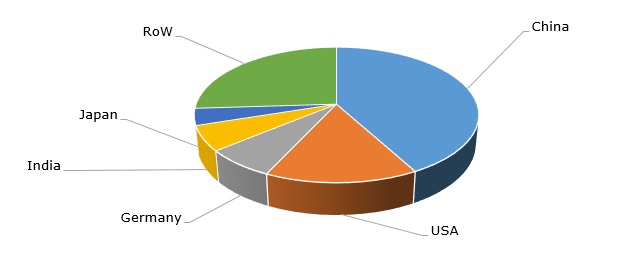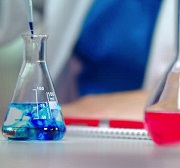Chlorine is known for its functional ubiquity, making it an indispensable component in nearly every household and industrial sector. As such, it is extremely hard to foresee the dynamics of the chlorine market behaviour in the current times of the global Covid-19 pandemic. Undisputedly, many chlorine-consuming sectors (e.g. construction materials, consumer electronics, automotive parts, etc.) are adversely affected due to the overall economic recession caused by the pandemic. This putting extreme downward pressure on the demand for chlorine. In parallel to this, it also clear that with a general decline in the demand for PVC products in the construction segment, the demand for PVC products in medical applications (oxygen masks, ventilator tubes, goggles, face shields and other protective equipment for front-line medical staff) is on the rise.
The usage of chlorine as a disinfectant (e.g. sodium hypochlorite) and an antiseptic (e.g. mercuric chloride) is getting increased focus and boost. The most widely used disinfectants of the chloride family include chlorine, chlorine dioxide, and chloramine. Chlorine is a general biocide substance killing germs, micro-organisms, algae, etc. Chlorine applications in hospital environment are versatile due to its cleaning, disinfection, and antiseptic capacity. It assists in cleaning and disinfecting medical equipment and acts as a component of various medical products and medicines. Within the latter application, chlorine derivatives, like methylene chloride, allyl chloride, and epichlorohydrin, are also used. One of the plausible chlorine applications is coming from a decision to use chlorine dioxide to disinfect N95 protective masks used against Covid-19.
It goes without saying that under the Covid-19 circumstances the uninterrupted production of chlorine, caustic soda, and other chlor-alkali industry products is of crucial significance. Most countries support these sectors with a clear recognition that chlorine production should continue as it belongs to a category of essential businesses. The major chlorine manufacturers are also boosting the production and supplies of vital hygiene and medical products, such as disinfectants, sanitizers, cleansers, plastics used in the production of disposable personal protection equipment for medical professionals, memory foams for hospital beds, to name only a few.
Major chlorine-manufacturing countries in the world

For instance, Dow chemical corporation, with a total chlorine capacity exceeding 6 mln mty, is currently boosting the production of such products at its manufacturing sites in Belgium, Brazil, Germany, and the US. The company does not produce hand sanitisers, but manufactures the required components necessary for their production. The company is also engaged in donating large amounts of such products to various institutions, including public hospitals, worldwide. Another major chlorine manufacturer Bayer Corp. donates chloroquine tablets, hand sanitisers, face shields, etc., as well renders financial, research and other help to combat COVID-19. Similar activities are carried out by various major chlorine companies including Inovyn, PPG Industries Inc., Westlake Chemical, and other companies.
More cutting-edge information on the global chlorine market can be found in the insightful research report “Chlorine (CL): 2020 World Market Outlook and Forecast up to 2029”.
